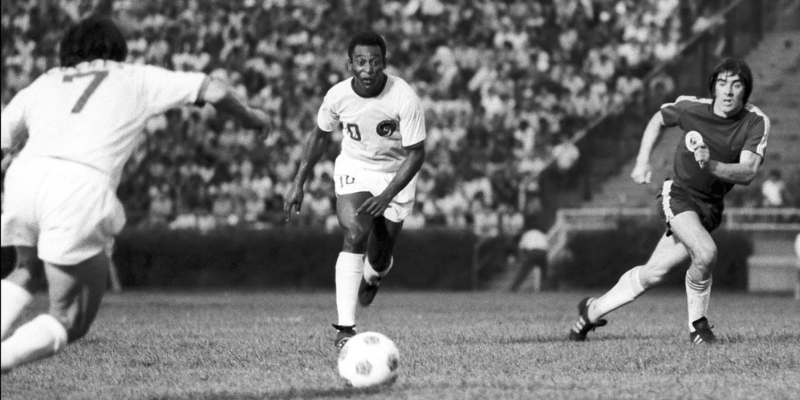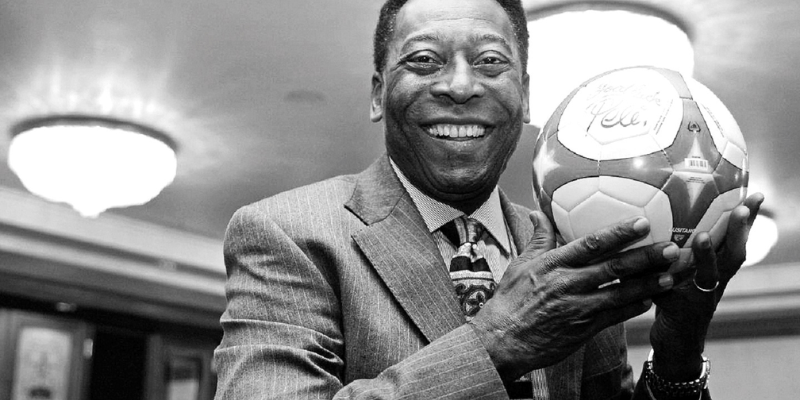Pelé seemed destined for greatness. But beyond his electric dribbles and thunderous goals, many fans have wondered: was Pelé a Christian? In this article, ZaneyStrike will walk you through Pelé’s spiritual life—his upbringing, his expressions of faith, the role religion played in his public image, and how he spoke about God in relation to his career. By the end, you’ll have a clear, nuanced answer—not just a label but a portrait.
Early life and religious background

Edson Arantes do Nascimento—better known as Pelé—was born on October 23, 1940, in Três Corações, in the Brazilian state of Minas Gerais. He grew up in poverty and moved during his youth to Bauru, São Paulo, where he began his path in football.
His family roots played a vital role in shaping his spiritual identity. Pelé was raised in a devout Catholic household—this is not speculation but something he openly affirmed throughout his life. He once said that his family “was very religious,” and that he carried that tradition forward in his private and public life.
In a country like Brazil, Catholicism is deeply woven into cultural and social life. Pelé embraced this heritage, and elements of Catholic faith—crosses, prayers, blessings—would become part of his narrative even as he ascended to global icon status.
Evidence: public declarations and spiritual symbols
To answer was Pelé a Christian more than by checking a box, we can examine how he lived, how he spoke, and the symbols he carried.
Public statements and interviews
- In one interview with the Vatican’s L’Osservatore Romano, Pelé remarked, “God gave me the gift of knowing how to play football, because it really is just a gift.” He always attributed his talent to divine grace rather than pure personal talent or luck.
- He met and had audiences with three Popes—Paul VI, John Paul II, and Benedict XVI—and cherished those experiences as spiritually meaningful.
- In a 2003 conversation, he didn’t hesitate: “All my life I thank God.” That phrase reveals humility and acknowledgment of faith beyond mere superstition.
- During his career, especially in global tournaments, Pelé would sometimes cross himself when entering the field or kiss a crucifix he carried—small gestures that signal religious identity in action.
Symbolic practices
- Pelé consistently carried a crucifix, and sometimes a rosary, symbols associated with Catholic devotion.
- Before and during matches, faith was often a private ritual: prayer, silent moments, crossing the heart—nothing overly theatrical, but consistent.
- When Brazil’s national team went to the 1970 World Cup, the squad reportedly held daily prayers—not with the aim of “guaranteeing a result,” but to offer intentions, thanksgiving, and spiritual solidarity.
These practices and statements reinforce that Pelé did not pay lip service to faith; rather, he allowed Christian belief to become part of his life rhythm—even amid fame, travel, and pressure.
Complexities: faith, beliefs, and Brazilian religious culture

No life is devoid of nuance, especially when faith meets global celebrity. Saying was Pelé a Christian is accurate, but we should also recognize the layers and tensions.
Syncretism and cultural context
Brazilian culture often blends religious traditions—Catholicism, African-derived religions, spiritism, and folk beliefs. While Pelé identified as Catholic, he also respected a broader spiritual context. Some observers suggest he had an openness to universal themes: God as creator, love, hope, service.
Imperfect witness
Pelé was not a pulpit preacher. He made personal choices—some conventional, some controversial—over a long life with several marriages, public affairs, and complexities. Yet he rarely used his athletic platform to preach doctrine or moralizing sermons. Instead, he preferred integrating faith quietly into his persona.
In that sense, his faith was lived more than exhibited: a companion rather than a showpiece.
Influence on fans and legacy
Because Pelé was a global icon, his religious identity resonated with many Christians and non-Christians alike. For believers, he became a model: someone who combined excellence and humility, talent and gratitude. Churches and Christian media sometimes cite him as an example of faith in action without ostentation.
At his passing in 2022, many Catholic outlets and believers highlighted his faith journey as part of his legacy. Rio de Janeiro’s Christ the Redeemer statue was illuminated with his number 10 shirt in tribute, and the Pope praised his example of sportsmanship and unity.
So, was Pelé a Christian?

Yes—Pelé was a Christian, rooted in Catholicism, and he lived his faith in a way consistent with his personality: understated, sincere, and integrated. He never made dogma his brand, but he openly acknowledged God in his talent, embraced symbols like the crucifix, held spiritual conversations with church leaders, and let gratitude steer his narrative.
In short: His Christianity was not a marketing tool—it was part of who he was.
Final Thoughts
Was Pelé a Christian? Absolutely—and that truth weaves through his life as quietly as a prayer before kickoff. His faith didn’t overshadow his football; instead, it grounded him, reminding him and the world that greatness isn’t just measured in trophies or goals, but also in humility, respect, gratitude—and a life open to something greater than oneself.
If you’re curious to explore more legends’ faith journeys, or how spirituality intersects with football culture, ZaneyStrike has you covered—check our archives or request a profile on your favorite star.






